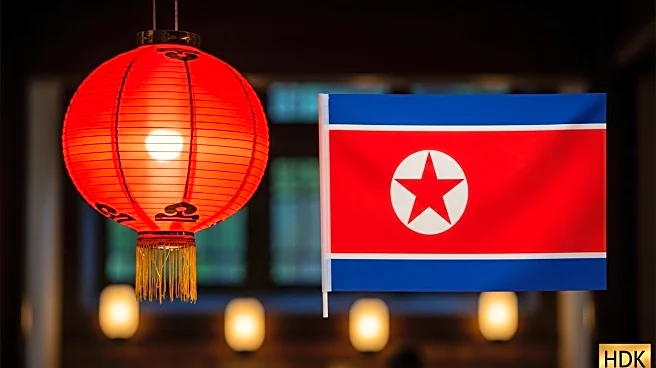What's Happening?
The foreign ministers of North Korea and China have agreed to deepen bilateral ties and resist hegemonism, a term likely referring to their opposition to the United States. This meeting in Beijing follows a summit between North Korean leader Kim Jong Un and Chinese President Xi Jinping, where they pledged mutual support. The meeting also included discussions on regional and international affairs, with both countries expressing a desire to enhance strategic communications and cooperation. This development comes as North Korea seeks to improve relations with China, its largest trading partner, amid ongoing tensions with the U.S. over nuclear weapons and strategic competitions.
Why It's Important?
The strengthening of ties between North Korea and China could have significant implications for U.S. foreign policy and regional stability in East Asia. As North Korea seeks to bolster its alliances, the U.S. may face increased challenges in addressing nuclear proliferation and maintaining influence in the region. China's involvement suggests a strategic move to maintain its influence over North Korea, potentially complicating U.S. efforts to isolate Pyongyang. This development could also impact U.S. relations with South Korea and Japan, as they navigate the shifting dynamics of regional alliances.
What's Next?
Attention is now focused on the upcoming 80th anniversary of North Korea's ruling Workers' Party, where a military parade is expected. The event may showcase new weapons aimed at the U.S. and its allies, further escalating tensions. Observers will be watching for China's response and the potential for increased military cooperation between North Korea and China. The U.S. and its allies may need to reassess their strategies in the region to address the evolving geopolitical landscape.












